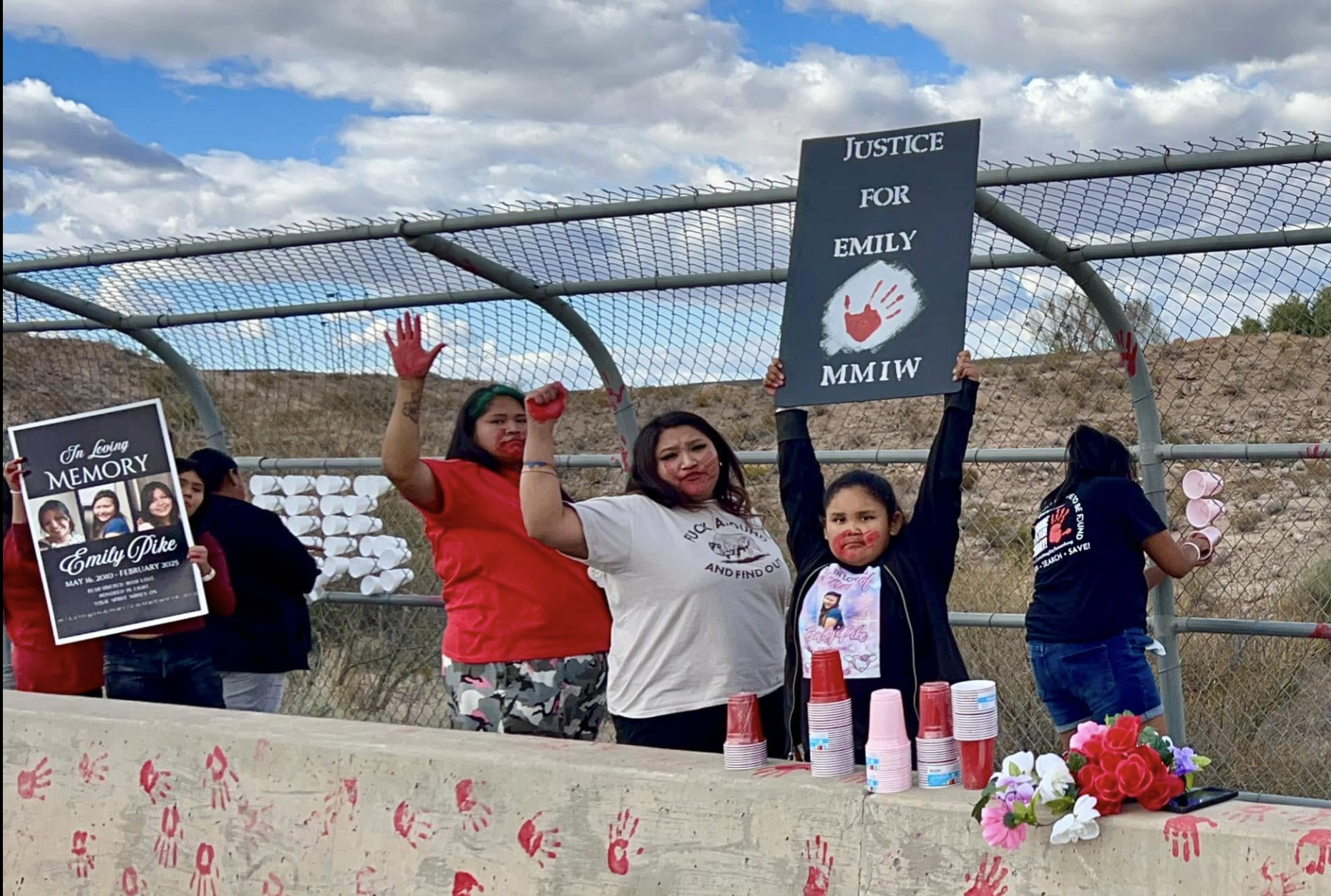
- Details
- By Kaili Berg
The heartbreaking death of 14-year-old Emily Pike has sent shockwaves through communities nationwide, drawing renewed attention to the ongoing crisis of Missing and Murdered Indigenous Women (MMIW).
Pike, a citizen of the San Carlos Apache Tribe, was reported missing from her group home in Mesa, Arizona, on January 27, 2025. Her dismembered remains were discovered on February 14, 2025, near Highway 60, northeast of Globe, Arizona.
"Our Tribe is mourning the tragic death of one of our young members. This is a terrible loss for the teenager’s family and our Tribe,” Terry Rambler, San Carlos Apache Tribal Chairman said in a statement.
The Gila County Sheriff's Office is leading the homicide investigation with support from the FBI, the Bureau of Indian Affairs, and the San Carlos Apache Tribal Police. While authorities have received numerous tips and leads, no arrests have been made.
In response to this tragedy, several events have been organized to honor Pike’s memory and shed light on the MMIW crisis.
A 2016 study by the National Institute of Justice found that over 84% of American Indian and Alaska Native women have experienced violence in their lifetime, with more than 56% having faced sexual violence. In 2020, homicide was among the top ten leading causes of death for AI/AN females aged 1-45.
On March 6, 2025, hundreds gathered at Encounter AZ Church in Mesa, near Pike’s last known location, to pay their respects. Many attendees wore red, the symbolic color of the MMIW movement, and held signs reading "No More Stolen Sisters" and "Justice for Emily Pike."
Pike’s family described her as a joyful and creative soul who loved animals, K-pop, and Roblox.
A candlelight vigil is scheduled for Saturday, March 15, at the Apache Gold Casino and Resort to honor Pike’s life and continue raising awareness about the violence disproportionately affecting Indigenous women.
More Stories Like This
Native News Weekly (August 25, 2024): D.C. BriefsNavajo Nation Mourns the Passing of Former Vice President Rex Lee Jim
Deb Haaland Earns Endorsement From Communications Workers of America Local 7076
University Soccer Standout Leads by Example
Two Native Americans Named to Democratic Congressional Campaign Committee's“Red to Blue” Program
Help us defend tribal sovereignty.
At Native News Online, our mission is rooted in telling the stories that strengthen sovereignty and uplift Indigenous voices — not just at year’s end, but every single day.
Because of your generosity last year, we were able to keep our reporters on the ground in tribal communities, at national gatherings and in the halls of Congress — covering the issues that matter most to Indian Country: sovereignty, culture, education, health and economic opportunity.
That support sustained us through a tough year in 2025. Now, as we look to the year ahead, we need your help right now to ensure warrior journalism remains strong — reporting that defends tribal sovereignty, amplifies Native truth, and holds power accountable.
 The stakes couldn't be higher. Your support keeps Native voices heard, Native stories told and Native sovereignty defended.
The stakes couldn't be higher. Your support keeps Native voices heard, Native stories told and Native sovereignty defended.
Stand with Warrior Journalism today.
Levi Rickert (Potawatomi), Editor & Publisher


